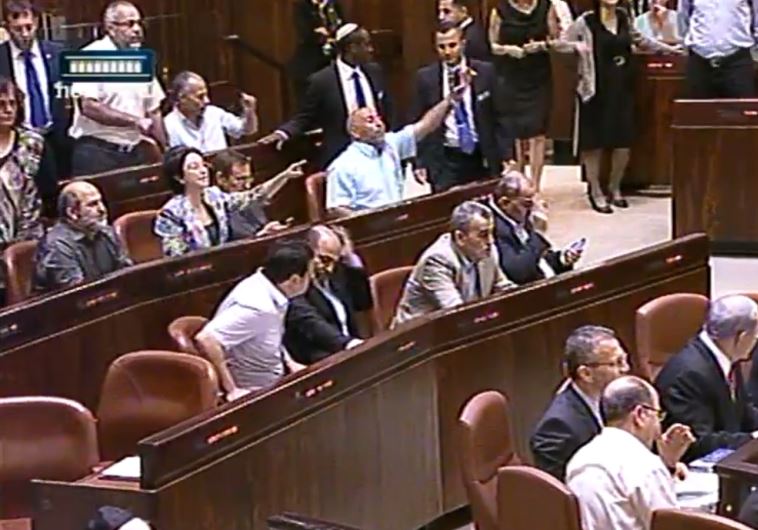Tempers flare in Knesset committee over new, more aggressive, anti-terror law
Chief West Bank Prosecutor: There was a group of lawyers whose purpose was to pass messages to jailed terrorists.
 Israeli Knesset members arguing in parliament.(photo credit: KNESSET CHANNEL)Updated:
Israeli Knesset members arguing in parliament.(photo credit: KNESSET CHANNEL)Updated: